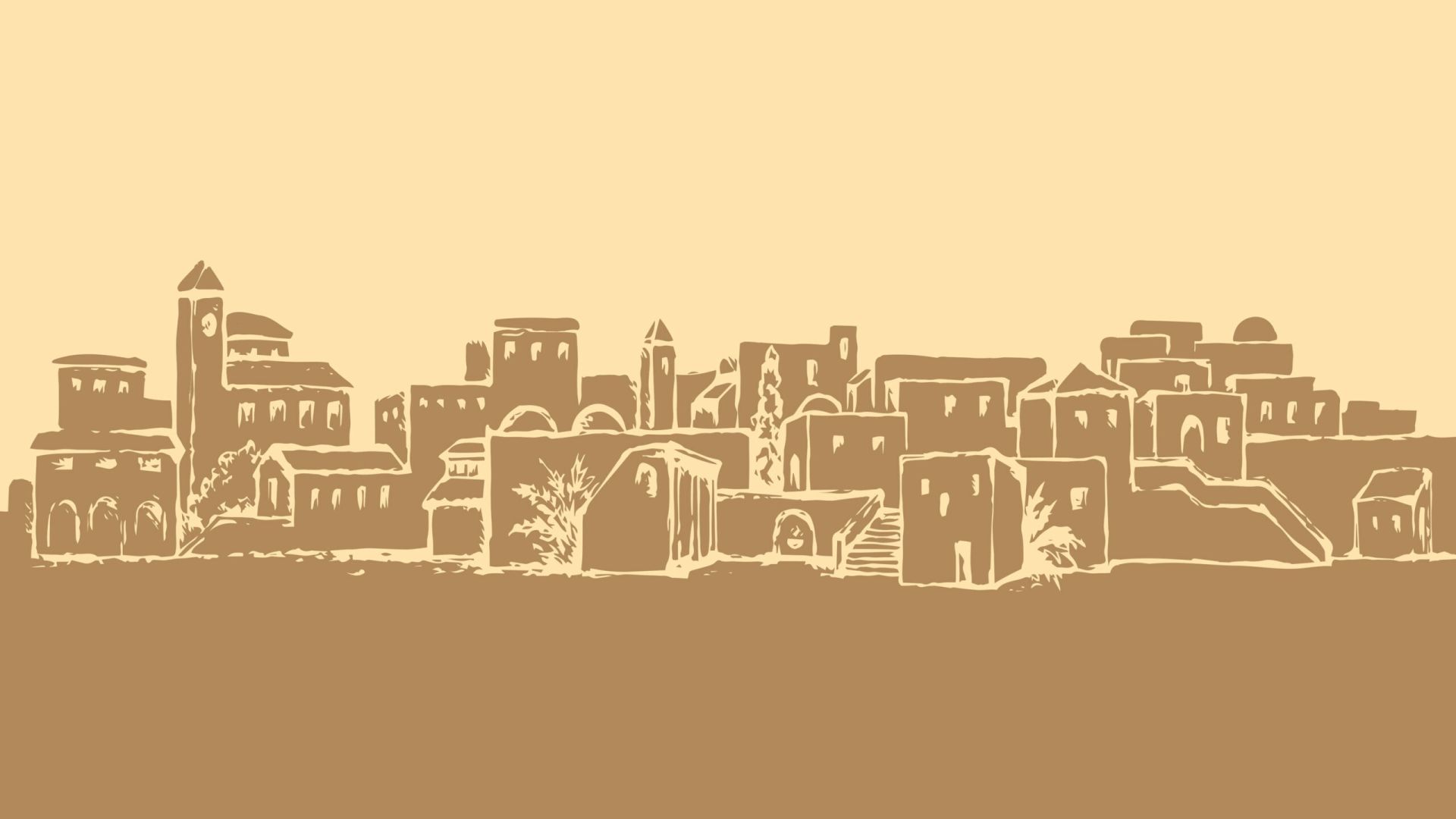The Six Rights of a Muslim
Imām ʿAbd al-Raḥmān ibn Nāṣir al-Saʿdī
The Six Rights of a Muslim
Imām ʿAbd al-Raḥmān ibn Nāṣir al-Saʿdī


On the authority of Abū Hurayrah (رضي الله عنه) who said: The Messenger of Allāh (صلى الله عليه وسلم) said: “There are six duties that are considered the right of one Muslim over another. They are:
- If you meet him, then greet him with the salām.
- If he invites you then answer his invitation.
- If he seeks your counsel then advise him.
- If he praises Allāh after sneezing, then invoke Allāh for him saying ‘May Allāh have mercy on you’.
- If he falls ill, then visit him.
- And if he dies, then follow his funeral procession”.1
Imām ʿAbd al-Raḥmān ibn Nāṣir al-Saʿdī comments:
[This list is not meant to be exhaustive or all-encompassing but], whomever fulfils these six duties in service to other Muslims will be as adherent in his fulfilment of other responsibilities in relation to them. These are six duties which are obligatory upon every Muslim, considered the right of fellow Muslims, for which Allāh has promised an immense reward.
-
If You Meet Him, Then Greet Him with the Salām
For giving the salām to one another causes love to blossom among Muslim communities, which then leads to true belief, allowing one to ultimately enter Paradise. As the Prophet (صلى الله عليه وسلم) said: “By the One in whose hands my soul resides! You shall never enter Paradise until you believe, and you shall never attain belief until you show love for one another. Shall I not inform you of a practice that shall cause love to blossom amongst yourselves? Spread the greeting of ‘salām’”.2
Giving the salām to one another is, therefore, among the excellent Islamic traits, such that two Muslim who meet one another do not separate until they have both invoked Allāh to grant the other safety from all forms of evil, and for mercy and blessings that stipulate the attainment of all forms of goodness. This invocation is accompanied by a pleasant, jovial face, other forms of greeting appropriate to the circumstance of the meeting, all of which necessitate amicability, familiarity and love, ridding relationships of awkwardness, loneliness and detachment. Moreover, offering the salām to another is considered the right of that Muslim, the one receiving the greeting must answer with that which is equal or better than it,3 and the best of the two is the one who is foremost in greeting the other.4
-
If He Invites You Then Answer His Invitation
When invited to partake in food and drink, one should set his Muslim brother’s mind at ease by accepting his invitation. For the inviter would have gone out of his way to honour him with an invitation such that he deserves to be answered unless the invitee has a valid excuse.
-
If He Seeks Your Counsel Then Advise Him:
If he seeks your advice regarding him taking a particular course of action saying: “Do you think I should do such-and-such or not?”, it is considered his right that you advise him with that which would be beloved to yourself. If the proposed action is wrought with benefit from all angles, then encourage and galvanise him towards engaging with it. Contrarily, if there is harm in it, then warn him and dissuade him from it. If it consists of both harm and benefit, then explain and elaborate the disparate aspects of it to him, weighing the good with the opposing bad in order to come to the best decision.
This similarly applies to him seeking your counsel regarding personal dealings with another, including marriage or the decision to marry into a particular family. It is incumbent upon you to advise him sincerely, unadulterated by personal qualms or bias of any kind. Be wary of cheating or deceiving him in these matters, regardless of how small or insignificant they may seem. For those who deceive other Muslims may not be considered from among their ranks.5 Deception also constitutes abandonment of the obligatory counsel which is the right of his Muslim brother as mentioned in this ḥadīth.
It should be noted that this advice is obligatory in all circumstances but is of even greater import when another Muslim goes out of his way to specifically seek your opinion in a matter affecting him. For this reason, the ḥadīth specifically mentions “if he seeks your counsel”. This may also be understood from the ḥadīth: “The religion is naṣīḥah [i.e., advice, sincerely desiring good for another]”.6
-
If He Praises Allāh after Sneezing, then invoke Allāh for him saying: ‘May Allāh Have Mercy on You’:
The wisdom behind this is that the ability to sneeze represents a blessing from Allāh. By way of it, one is able to dispel the congested, contaminated air from within parts of his respiratory tract. It is Allāh who has granted a route of escape through which it is propelled, such that the one who sneezes is granted respite from the deleterious effects of retaining such air within his airways. Thus, it was legislated that upon sneezing, one praises Allāh for blessing him with such faculties, just as it is legislated for his brother in Islām to reply to this praise by invoking Allāh for him, saying “May Allāh have mercy on you”. The one who sneezed should then reply to this invocation by saying:
يَهْدِيكُمُ اللهُ وَيُصْلِحْ بَالَكُمْ
May Allāh guide you and correct your affairs.7
As for the one who sneezes without praising Allāh afterwards, he is undeserving of the invocation mentioned. He should certainly blame himself for this, as he is the one who refused to remember Allāh at this juncture, resulting in the lack of invocation for him from his brother. In doing so, he has deprived himself of two blessings:
- The blessing attributable to praising Allāh.
- Contingent upon this praise, the blessing of receiving the invocation of his brother in Islām.
-
If He Falls Ill, Then Visit Him
Visiting the sick is considered among the rights of the fellow Muslim, but its obligation is more assured if the sick person possesses specific rights over the prospective visitor, like a close friend or family member. The act of visiting the sick is among the greatest acts of righteousness. For the one who visits his sick brother in Islām is basking in the mercy of Allāh, fully encompassed and covered by it whilst he sits with him. As the one who visits the sick in the morning will have [seventy-thousand] angels invoking Allāh for him until the afternoon, just as the one who visits the sick in the afternoon will receive the invocation of [seventy-thousand] angels until the morning.8
It is most befitting for the visitor to invoke Allāh to cure the sick person,9 while speaking to him amicably, in a manner from which he may derive comfort. The visitor should endeavor to set his mind at ease by giving him glad tidings of impending cure from his illness, while also reminding him to utilise this opportunity to perform sincere repentance to Allāh for his misdeeds, seeking Allāh’s forgiveness with sincerity and earnestness, and advising him with other beneficial directives. The visitor should also ensure to avoid prolonging his stay, remaining only for the duration of an average visit. The exception to this is if the sick person indicates that frequent visits or prolonged sittings are a source of solace for him, then the duration of visits should be adjusted accordingly; the best course of action being refined in accordance with the individual circumstance of each sick person.
-
And If He Dies, Then Follow His Funeral Procession
The one who follows the funeral of his Muslim brother until the funeral prayer is performed is deserving of a qīrāṭ (the likeness of the Mountain of Uḥud worth of reward). The one who remains with it until it is buried is deserving of qīrāṭān (reward equivalent to two mountains the size of Uḥud).10 This is because following the funeral procession is inclusive of that which is considered Allāh’s right, the right of the deceased Muslim, and the right of his remaining, living relatives.
Endnotes:
[1] Authentic: narrated by Muslim: 2162.
[2] Authentic: narrated by Muslim: 2612.
[3] Referencing Al-Nisāʾ, 4:86
وَإِذَا حُيِّيتُم بِتَحِيَّةٍ فَحَيُّوا بِأَحْسَنَ مِنْهَا أَوْ رُدُّوهَا ۗ إِنَّ اللَّهَ كَانَ عَلَىٰ كُلِّ شَيْءٍ حَسِيبًا
“When you are greeted with a greeting, greet in return with what is better than it, or (at least) return it equally. Certainly, Allāh is Ever a Careful Account Taker of all things.”
[4] Referencing the ḥadīth narrated by Abū Dāwūd: 5197 and graded authentic by Shaykh al-Albānī in Ṣaḥīḥ al-Targhīb wa-al-Tarhīb: 2703.
[5] Referencing the authentic ḥadīth narrated by Muslim: 101.
[6] Authentic: narrated by Muslim: 55. For a full explanation of the ḥadīth, see our article: The Religion is Naṣīḥah by Imām Ibn Rajab.
[7] Authentic: narrated by al-Bukhārī: 6244.
[8] Authentic: narrated by Abū Dāwūd: 3098 and graded authentic by Shaykh al-Albānī in Ṣaḥīḥ Sunan Ibn Mājah: 1183.
[9] Referencing the saying of the Prophet (صلى الله عليه وسلم): “There is no Muslim servant of Allāh who visits a sick person whose time of death has not yet arrived, and invokes Allāh for him saying:
أَسْأَلُ اللهَ الْعَظِيم رَبَّ الْعَرْشِ الْعَظِيم أَنْ يَشْفِيكَ
I ask Allāh the All-Mighty—Lord of the great throne—to cure you
Except that Allāh cures him of his illness”.
Narrated by al-Tirmidhī: 2083 and graded authentic by Shaykh al-Albānī in Ṣaḥīḥ Sunan al-Tirmidhī: 1698.
[10] Authentic: narrated by al-Bukhārī: 47.
Source: Bahjah Qulūb al-Abrār: 92-95
Translated by: Riyāḍ al-Kanadī
Most Popular: Last 30 Days

Everyone’s Speech Is Subject to Acceptance or Rejection Except the Prophet (ﷺ)

The Beautiful Names of Allāh: How to Practice What They Entail in Our Lives










